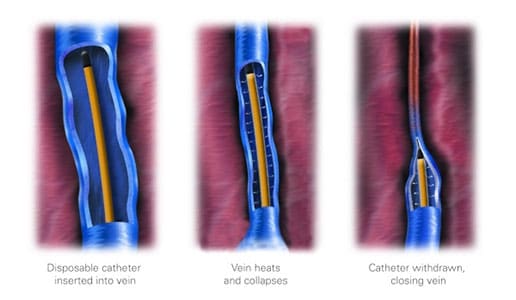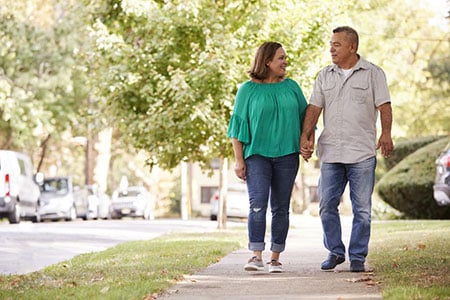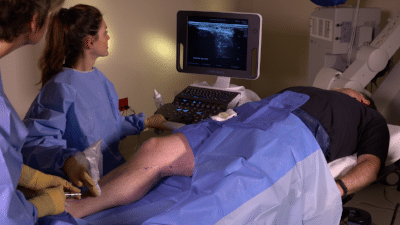RadioFrequency Ablation: How it works
Perhaps the most important thing to know about Radiofrequency Vein Ablation, is that it has a high success rate in treatment of varicose veins. Additionally, it is minimally invasive, minimally painful, has low rates of complication, can be performed in-office, and has a very rapid recovery time, usually about a day.
The Venous Ablation Process

The procedure is very effective in the treatment of large vein varicosities including; the great saphenous vein, small saphenous vein, and perforator veins which link the superficial venous system to the deeper veins.
Learn More about RadioFrequency Vein Ablation
When performed by an experienced, qualified Vein Specialist, success rates for radiofrequency ablation exceed 97%. To see whether you can benefit from this advanced varicose vein treatment, book a consultation and exam with a qualified vein specialist.
References:
https://www.ncbi.nlm.nih.gov/pmc/articles/PMC3377553/: retrieved October 15, 2016
Question: I am 50 years old; a bachelor, and a teacher. Right now I have varicose veins (though they are not painful) in my right leg. I am not happy to see them. What can you suggest to lessen its visibility? Answer: Unfortunately, most conservative therapies are designed for symptomatic control and not necessarily appearance. Treatments…
Read MorePregunta: me lastimé el pie ayer a medio camino hacia los dedos de los pies. Tengo que volar en dos días. ¿Debo usar calcetines de vuelo? Mi pie está ligeramente hinchado. He estado descansando con el pie hacia arriba. Puedo caminar sobre ella. Duele un poco. El vuelo dura 7 horas.
Read MorePregunta: tengo trombosis venosa profunda (TVP) en mi pantorrilla derecha, sólo han pasado 3 semanas desde que me enteré. Mi pierna todavía se hincha después de 3 semanas, incluso cuando llevo mi media de compresión 20 -30. Es normal. ¿Debo quitarlo y elevar mi pierna o dejarla encendida?
Read MoreQuestion: I hurt my foot yesterday halfway towards the toes. I have to fly in 2 days. Should I wear flight socks? My foot is slightly swollen. I've been resting with the foot up. I can walk on it. It hurts a little bit. The flight is 7 hours long.
Read MoreQuestion: I have deep vein thrombosis (DVT) in my right calf, it has only been 3 weeks since I found out. My leg still swells after 3 weeks even when I wear my compression stocking 20 -30. Is this normal. Should I be take it off and elevate my leg or leave it on?
Read MorePregunta: Quiero saber que ejercicios funcionan mejor ya que mi tratamiento EVLT no me dio los buenos resultados que me esperaba.
Read MoreQuestion: I want to know which exercises work best since my EVLT treatment did not get me the good results that I expected. Answer: Ones ability to exercise, and the types of exercise a person can complete, varies greatly. Speaking in generalities, exercise that benefits lower extremity venous health does not have to be significantly…
Read MoreLa cirugía de la vena varicosa no es lo que solía ser Si usted ha escuchado — o experimentado — historias sobre la cirugía de eliminación de venas estándar que ocurrieron antes de la vuelta de este siglo, es comprensible si usted está preocupado acerca de la búsqueda de ayuda de un especialista en venas…
Read MoreVaricose vein surgery not what it used to be If you have heard-or experienced–stories about standard vein removal surgery that happened prior to the turn of this century, it is understandable if you are concerned about seeking help from a qualified vein specialist for your painful varicose veins. There was a time when leg vein…
Read MoreCalambres en las piernas Hay muchas razones para los calambres musculares. Mucha gente los experimenta debido a una deficiencia de ciertos elementos clave como el potasio y el magnesio. Otros, particularmente aquellos que viven en climas más cálidos como Arizona, experimentan calambres debido a la deshidratación. UN gran número de pacientes a los que consulto,…
Read More

